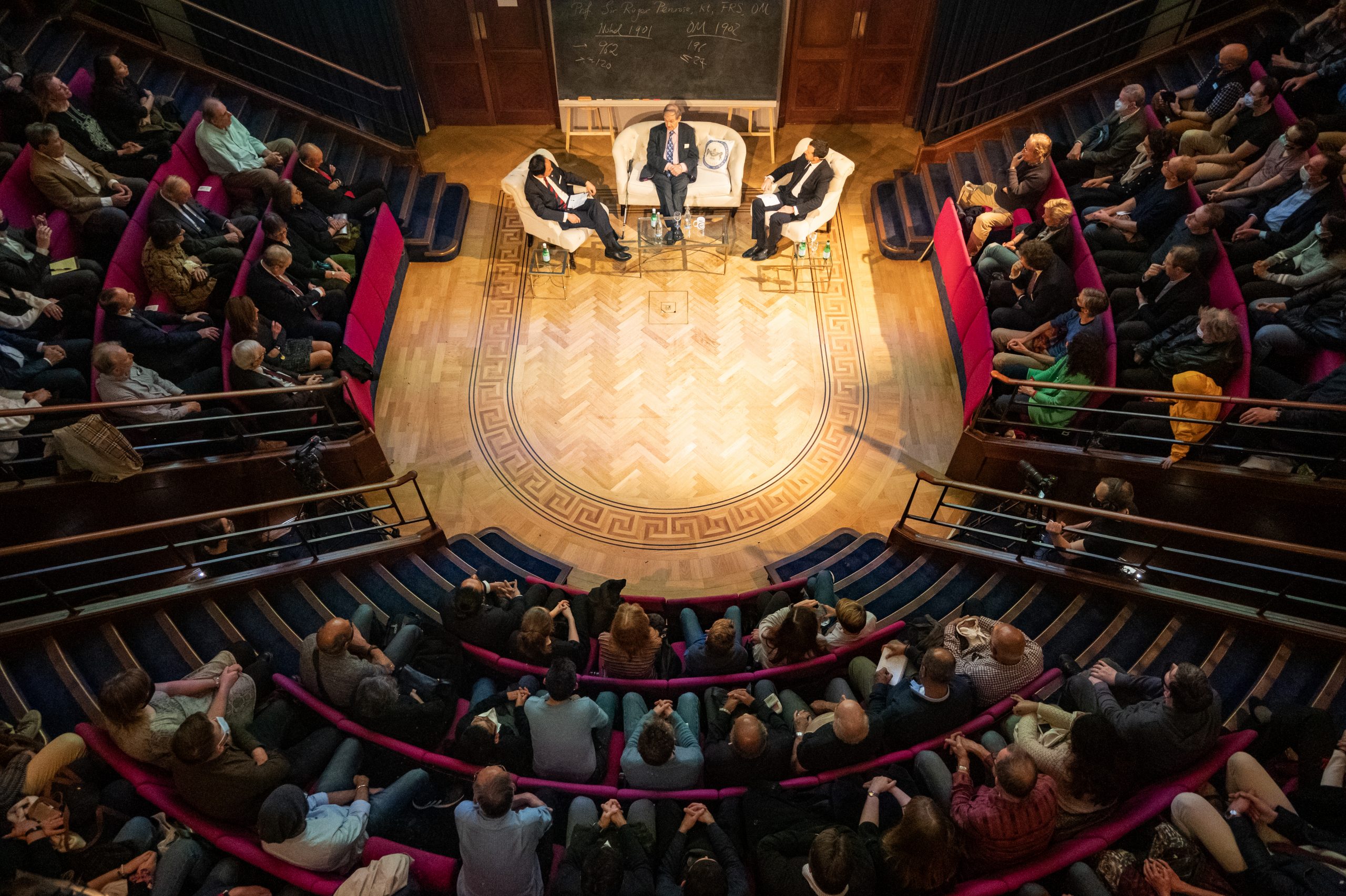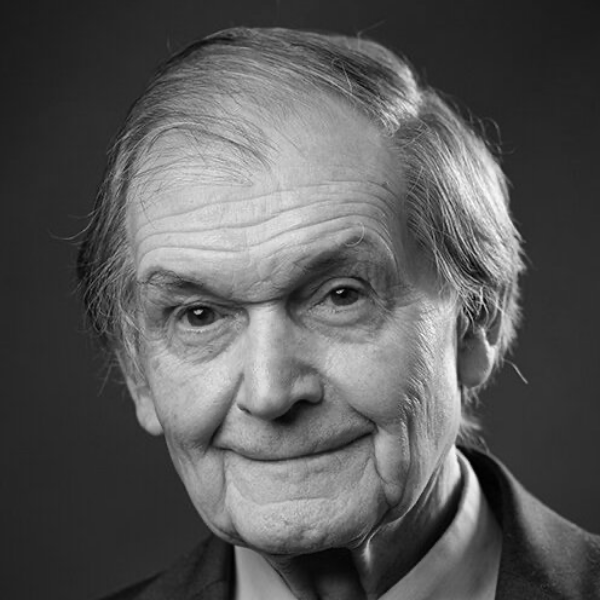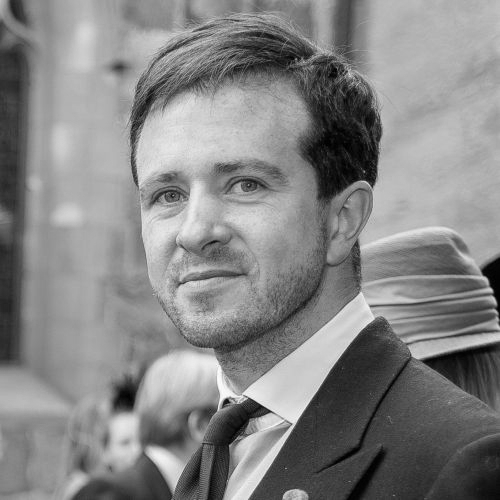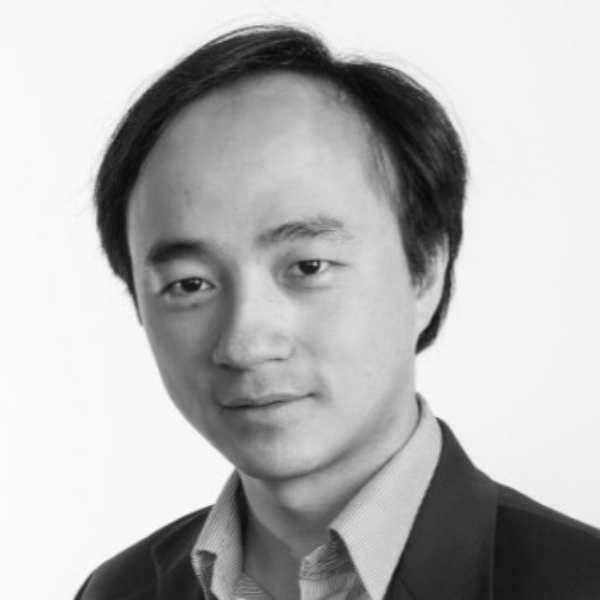In conversation with Sir Roger Penrose
7 PM, 26 Oct 2021
Sir Roger Penrose talks about physics, philosophy and art in a conversation with Thomas Fink and Yang-Hui He in the Faraday lecture theatre.
Sir Roger Penrose is a mathematical physicist with the eye of an artist and the soul of a philosopher. He won the 2020 Nobel Prize in Physics for his work on the mathematical foundations of black holes. The tilings which bear his name can cover the plane in a never-repeating pattern. His work on the theory of mind suggests consciousness is a peculiarly human capability. He is a master word-smither, capable of rendering the most complex ideas clear, and his popular books have inspired a generation of physicists and laymen alike.
In this event, Sir Roger joins Dr Thomas Fink and Prof. Yang-Hui He on stage for a conversation about the man behind the science. We take a rare look into the workings of this singular mind. How does he get his ideas? Is beauty a guide to truth? What’s the basis of free will? Is AI a threat? Can art inform science? Is man different from machine? Do universities monopolise research? The discussion takes place in the Faraday lecture theatre at the Royal Institution. Afterwards, guests are invited to join the speakers for drinks and canapés in the London Institute’s private rooms.
















Speakers

Sir Roger Penrose Kt OM FRS is Emeritus Rouse Ball Professor at Oxford. He won the Nobel Prize in Physics and the Wolf Prize in Physics and was appointed to the Order of Merit. His work spans general relativity, black holes, cosmology, tiling theory and the theory of mind.

Dr Thomas Fink is the founding Director of the London Institute and Chargé de Recherche in the French CNRS. He studied physics at Caltech, Cambridge, and École Normale Supérieure. His work includes statistical physics, combinatorics, and the mathematics of evolvable systems.

Prof. Yang-Hui He is a Fellow at the London Institute, Professor at City University, Chang-Jiang Chair at NanKai University and Lecturer at Merton College, Oxford. He studied at Princeton, Cambridge and MIT and researches string theory, algebraic geometry and machine learning.